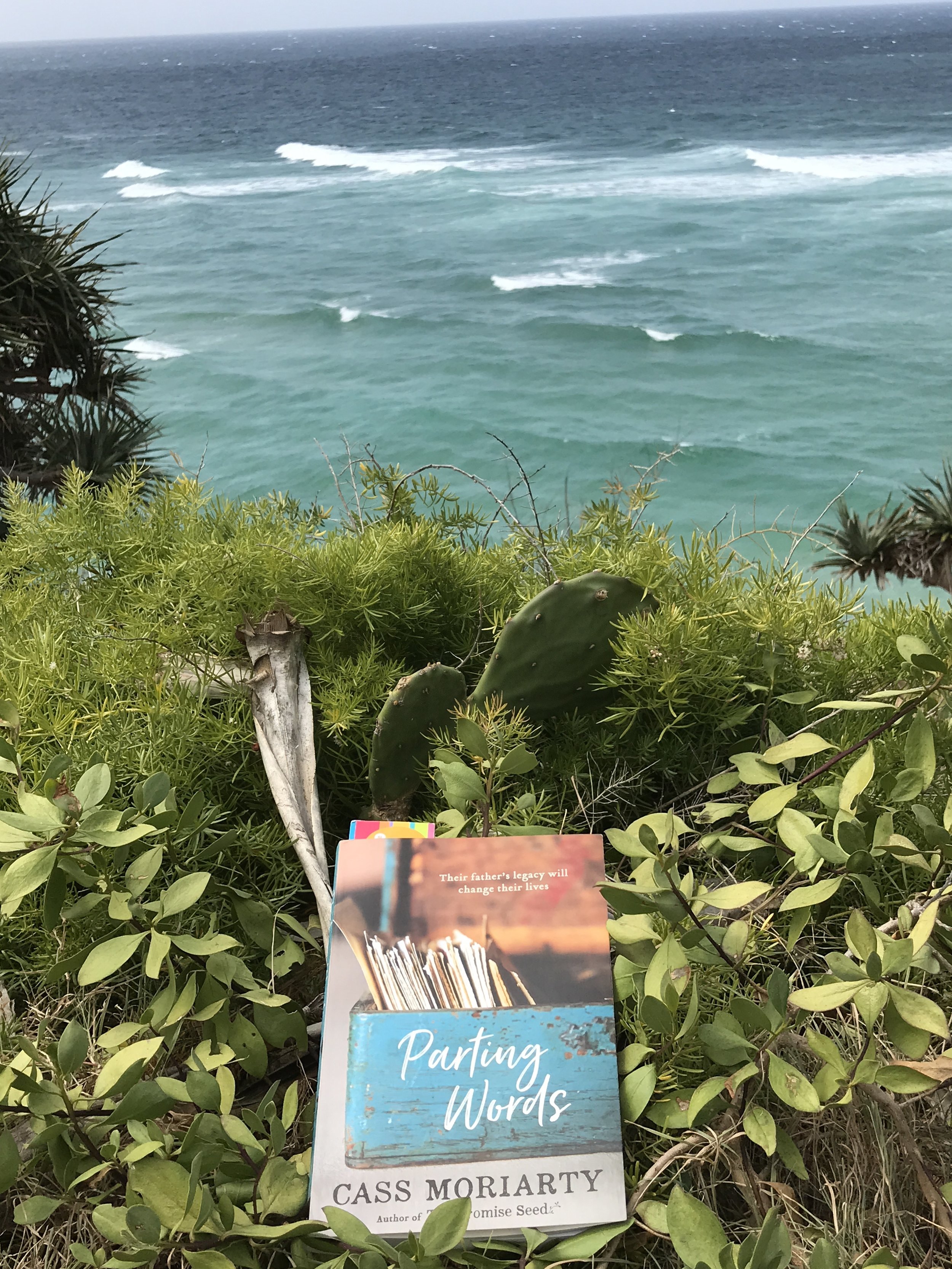Parting Words
By Cass Moriarty
UQP 2017
I was excited to read Cass Moriarty’s new book, ‘Parting Words’, after hearing so much about it and having loved ‘The Promise Seed’. ‘Parting Words’ lived up to all my expectations and hopes and is a fine consolidation from ‘The Promise Seed’.
‘Parting Words’ is a story of family – the limitations and demands of expectation – through the legacy of Daniel Whittaker and his unusual Will requiring tasks of each of his children. As such, it is a modern allegorical tale with subtle Aesop's fables overtones grounded with finely drawn characters each showing a picture of Australia: both modern or WWII generations. The mix of characters and their ages allows Moriarty to delve into changing (and stagnant) gender, sexuality, class, power, and racial stereotypes in Australia. Given the ‘Same sex Marriage’ Postal Poll, some are very current and add to a sense of a national discourse on these topics.
In discussing all these disparate themes in a organic and integral way Moriarty’s compassion for her characters in all their imperfect humanity shines through. ‘Parting Words’ is a warm and inclusive book. I loved the quiet injection of contemporary debates on refugees, the rightful place of the First Nation’s people, showing citizens are pawns in the political machine in both war and peace times.
'Parting Words' by Cass Moriarty overseeing Frenchman's Cove at Stradbroke Island. Moriarty's skillfully unfolding family mystery is a perfect and thoughtful holiday read. I couldn't put it down.
It develops a fine sense of place also and Brisbane itself is well rounded and identifiable. Many restaurants, cafes, attractions of the city's inner west owe Moriarty a standing discount (or at least a thanks). As a Brisbanite it is rare and lovely to have glimpses of places we know depicted in literature. Australia’s national cultural cringe is shrinking but it's been replaced with a dominance of stories from Sydney and Melbourne that can make people from other cities and locales feel their stories – places and lives – matter less. It’s great to have this addition to a broadening of the Australian identity. Here’s hoping for more to come.
Although dead from the start, Daniel Whittaker’s characterisation was very alive and multi-faceted both through his letters and his children and other character’s recollections.
The pacing is superbly done and borrows something from the thriller form in relation to the slow reveal and build up of information and insight into both Daniel and his children. There were revelations that distanced me from Daniel as a person but they were corrected later by another reveal and further information that explained his motivation. The building of these reveals shows the complexity and flawed nature of humanity and the rush to judge, label and write off by the reader or observer. In a global sense this is depicted by the changing idea of ‘Japan’ from the hated enemy of Daniel’s war days to the cultural and trading partner of today.
‘Parting Words’ is a masterful work by Moriarty that fosters love, understanding and acceptance for the next generation. It shows the human capacity to change and thereby develops hope something under attack in 2017.



